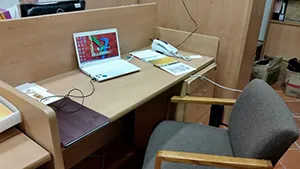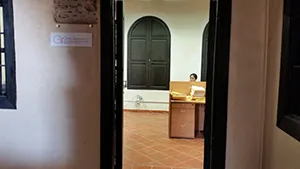2017 Activity Report
March Activity Report
4 March 2018
Global Japan Office Coordinator
Yair Alejandro Yebra Lara
There are many events held in March in Guanajuato. One such event is the WRC (World Rally Championship) Rally.
The WRC was first held in Mexico in 2004. Compared to other WRC events, the Rally does not have a very long history, but has become a very popular event, and an irreplaceable part of the WRC. The Rally runs through the middle of Mexico, including through León, Guanajuato.
https://toyotagazooracing.com/jp/wrc/report/2018/03/
Another event in March is the Day of the Flowers. The Day of the Flowers marks the beginning of Holy Week (the week before Easter observed in Christianity), and is actually a holiday and festival that is only celebrated in Guanajuato.
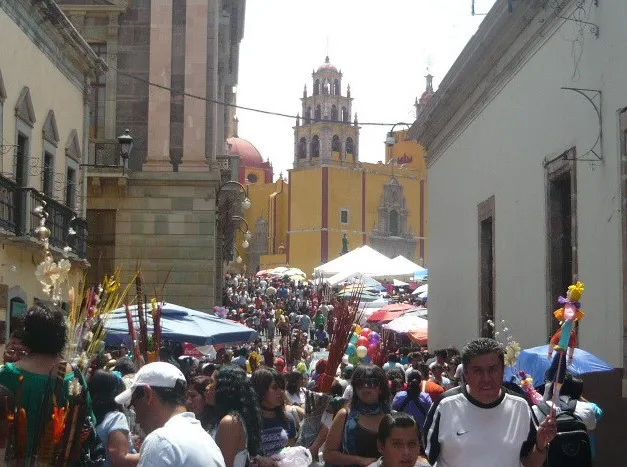
I guess you could also call it the “beginning of spring festival”
The Dubbing Workshop is going strong!
This month we focused on two dubbings, one of which was 31 MINUTOS (31 Minutes) a fake news program where all the guests are dolls. Students picked one scene from this show and translated it into Japanese. We tried doing Spanish in February, but this time I thought we ought to do it with the Japanese lines we translated.
The second dubbing we did was a scene from Fullmetal Alchemist. Students chose a scene, and then everyone listened and typed out the words. Many new words came out of this, but the students were able to finish the task. Next time we will decide the cast, and the Mexican students will dub it in Japanese.
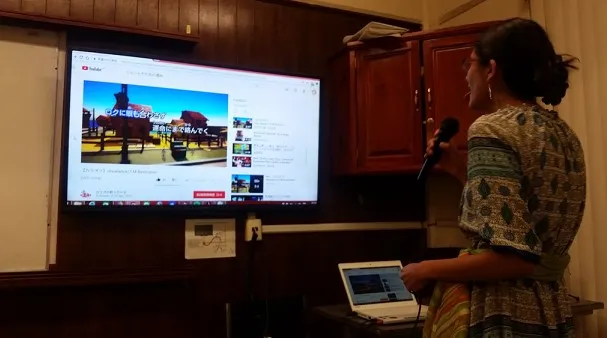
Before Holy Week, I also held another karaoke session. We used the Japanese JOYSOUND software, so it was just like doing karaoke in Japan. More students are starting to come to these sessions.
February Activity Report
5 February 2018
Global Japan Office Coordinator
Yair Alejandro Yebra Lara
On Tuesday the 12th of February, the Dubbing Workshop, which was started last August, started again. Our meetings will be held from 18:00-20:30 every Tuesday and Thursday in the first meeting room of the language school at the University of Guanajuato. Four new members joined, two Mexican students and two Japanese students. There are also the six students who joined last August. Now that these six students are the ‘senpai’ (upperclassmen) of the workshop, will they feel more responsible I wonder?
Also, students here are beginning to apply to go on exchange to TUFS in August, so two University of Guanajuato students will go to TUFS next semester.
This month, about 15 students from Soka University came to study at Guanajuato, and I was able to visit San Miguel Allende with them. We did sightseeing as a group, which was very fun, and the city was beautiful. The food was also beautiful. Two students from TUFS also came to take a one month Spanish course. These two students spent their time enjoying the many places of Guanajuato and Mexico, and I got them to answer a questionnaire, so I want to share this with you below.
Self Introduction -- I am Saki Yamada, a third year Spanish major.
Why did you choose to come on exchange to Mexico? -- Going to Europe is a little bit scary, and a friend who went to Mexico recommended it to me.
What’s been the best thing you’ve experienced since coming to Mexico? -- There’s so many I can’t choose. The delicious food, the lovely people and the number of places you can go.
Have you had any problems during your exchange? -- No, not particularly.
When you return to Japan, what will you miss the most? -- Mexican food.
Will you recommend going to Mexico and Guanajuato to your lowerclassmen? -- Yes.
That is all for this month.
January Activity Report
5 January 2018
Global Japan Office Coordinator
Yair Alejandro Yebra Lara
Here at Guanajuato University, winter vacation is from mid-December until mid-January. It’s a good chance to go on trips around Mexico, do sightseeing, and relax at home. After this vacation, the January-June semester begins. There are many scholarship and privately-funded exchange students this year. Of course, this includes Japanese exchange students and TUFS exchange students.
This month, a welcome event was held for exchange students. This year there are 192 exchange students. 132 of these are from 43 foreign countries (including Germany, Colombia, Spain, China, Argentina, France, South Korea, Sweden, Peru, Canada, Russia and Chile), and there are 60 exchange students from other parts of Mexico. All of the students will study at one of the four campuses of the university.
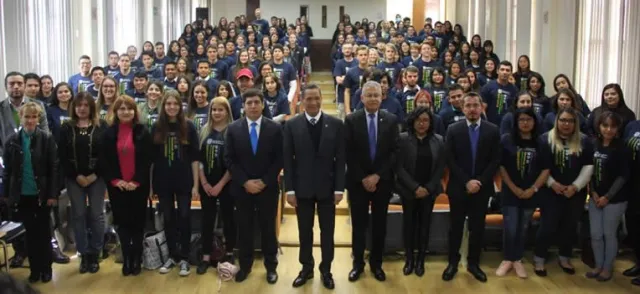
There are three students from TUFS on exchange at Guanajuato University. One student is privately-funded, and the two who have just arrived are scholarship exchange students. Even though they have only just arrived it seems they have made friends already. I think I’d like to introduce these students in my next report.
A meeting for the Dubbing Workshop was also held this month. It was a very fun meeting. We ate at a pizza buffet and talked about a lot of things. At the end of the meeting we decided a few matters regarding the Dubbing Workshop, and then went home. All the students have become the senpai of the club now. I felt like the Workshop has become very similar to the image I have of university circles in Japan. In February we will look for new members and start club activities again!
I want to enjoy this year, and continue studying Japanese.
December Activity Report
December 2017
Global Japan Office Coordinator
Yair Alejandro Yebra Lara
At the University of Guanajuato we have exams in the beginning of December, but about a month after that winter vacation begins. This is a good chance to go travelling or sightseeing in Mexico, or to spend time relaxing at home. Most of the students at University of Guanajuato come from somewhere else, so they go home to their families during Christmas and New Year’s. The atmosphere of the city changes drastically, as there are more tourists than students. In January everyone goes back to school and the atmosphere changes again. We are looking forward to having new international students from Japan. We have heard that there will of course be students coming from TUFS as well; specifically there will be two TUFS students coming.
Every December the JLPT is held in Mexico City, and every year students studying Japanese go there to take the exam. It took a lot of work but everyone devoted their best efforts to passing the test. This year there were students taking the test in levels N5 to N1.
November Activity Report
November 2017
Global Japan Office Coordinator
Yair Alejandro Yebra Lara
Hello everyone, I am Yair Yebra, a coordinator at GJO Guanajuato. I would like to talk about the interesting things that we did in November.
Dubbing Workshop
We continued the “Dubbing Workshop” which was started in August. In the Dubbing Workshop not only do students learn Japanese and Spanish, but they also learn how to do dubbing and how to act, so everyone is always looking forward to this. Before starting our Dubbing Workshop, we always do vocal exercises; specifically we do vocal exercises that are popular in Japanese theater.
During the November Dubbing Workshop at GJO, we performed a dubbing of the play “La vida en la máquina” (Life in the Machine). Also we translated a scene from a Japanese anime called “Stein’s Gate” into Spanish and dubbed it. This photo shows the particular scene which we worked on.
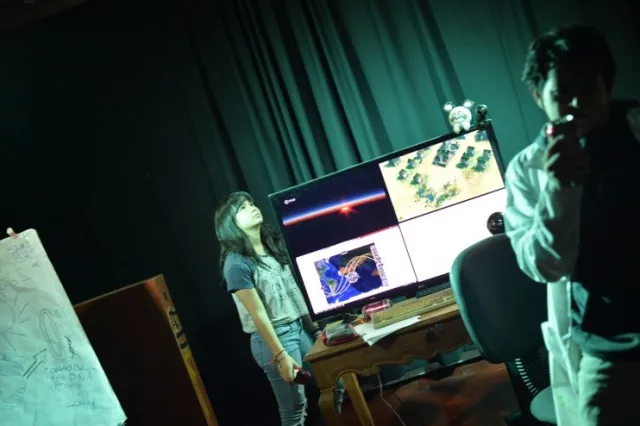
In this scene the protagonist Rintaro Okabe meets a girl who is a famous scientist. It is a humorous scene in which Rintaro is talking as if he is suffering from “Chuunibyou”. By interpreting and acting out this scene, we were able to gain an understanding of the “Chuunibyou” phenomenon in Japan. Everyone learned a lot from this experience. In the play a programmer initiates a simulation of evolution as part of the process of creating a new game, but this unintentionally leads to a the creation of a conscious life-form, which in turn stimulates the audience to question what the limits of existence really are.
An Interview with TUFS’ Akira Takahashi
We also interviewed Akira Takahashi, an international student from TUFS, about life in Guanajuato and his impression of the city.
Q: Why were you interested in the Latin American region?
A: I think my parents had a lot to do with it. I had the opportunity to take long trips in South America, and I had also come to Mexico with my family and found it interesting to be on the opposite side of the Earth.
Q: What kind of impression has Guanajuato left on you in the past two months?
A: One is that it is comfortable to live in. The city itself is small enough that I can walk anywhere, and it is a lively town even at night so the streets are safe. It is a comfortable city to live in.
Q: Would you recommend coming to Guanajuato to other TUFS students studying Spanish?
A: Yes. When you think about studying Spanish in South America or the Middle Americas, safety always becomes an issue. However this city is very small and there aren’t isn’t that much crimes, and people can lead regular lives if they are careful enough. Also, you can make Japanese food because they have the ingredients in Supermarkets or at Leon. I think I can recommend Guanajuato in these respects.
Q: What kind of life do you currently have here? Tell us the good points and the fun points.
A: On weekdays I have class, and after class I do homework. When I’m finished early, I either go play sports, or go to the Dubbing Workshop, or cook by myself. I think I have a lot of freedom here.
Q: Has anything been surprising to you since you arrived in Mexico?
A: I cannot believe the speed bumps (“Tope”) in the roads made to slow down cars. They’re absolutely horrible. There are a lot of them especially in Guanajuato so I really want something to be done about them.
Q: Please tell me what you thought of the Dubbing Workshop.
A: Everyone is better at Japanese than I thought they would be. I thought they had just started studying, but their pronunciation is good enough to engage in actual Japanese conversation and I wasn’t expecting that at all. In a sense this is the only time in which I hear any Japanese, so it made me feel kind of nostalgic, like “Oh, it’s Japanese”.
Retirement Ceremony of Professor Midori Kato
A retirement ceremony was held for Professor Midori Kato, who had been teaching Japanese at the University of Guanajuato since 1990. Many who had been studying Japanese since 1990 or later came to celebrate. The Japanese faculty at the University of Guanajuato only exists because of her. She may also be very important to the Japanese community at the city of Guanajuato. Japanese international students and Mexican students studying Japanese at the Japanese faculty all received her help. As a former student of the Japanese faculty, I am also indebted to her. Thank you very much for your service.
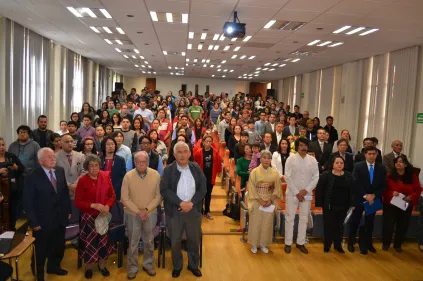
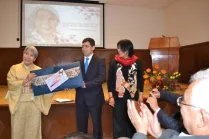
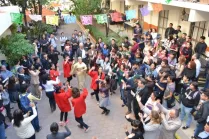
October Activity Report
October 2017
Global Japan Office Coordinator
Yair Alejandro Yebra Lara
This month, the Humanities Festival was held at the University of Guanajuato. At this festival, there were many Japanese events such as furoshiki, a dance performance by the Japanese dance group ‘Rakushou,’ and performances of Japanese songs by Japanese exchange students. The GJO held two events during this festival. One, on the 2nd of October, was an introduction to Japanese plays, focusing around an introduction to the play I acted in during my exchange at Meiji University.
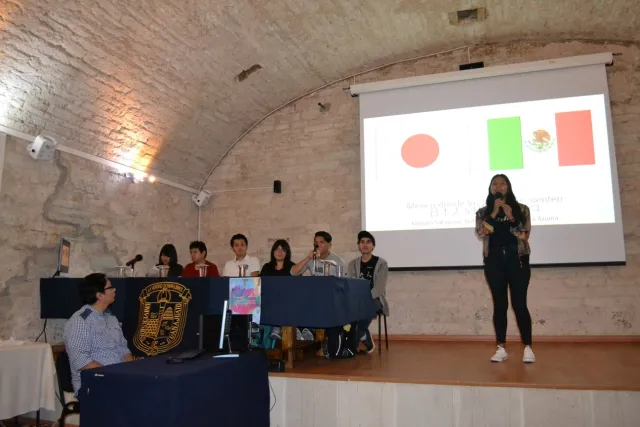
The other event was a round-table discussion on the differences between Japan and Mexico, with particular focus on things such as exchange experiences, hardships in Japan, and living expenses. The discussion was held between two Mexican students and three Japanese students. The five talked a lot about going on exchange to Japan, and the general impression they had of Mexico and Japan.
Also this month, we continued to hold the ‘dubbing seminar’ that we started in August. I invited some TUFS students to the dubbing seminar, and they joined as members. In addition to this, we posted some of our activities on YouTube, so please check out the link below.
https://www.youtube.com/channel/UCEICBBVrVTMvw1_XlPd8NzQ?view_as=subscriber
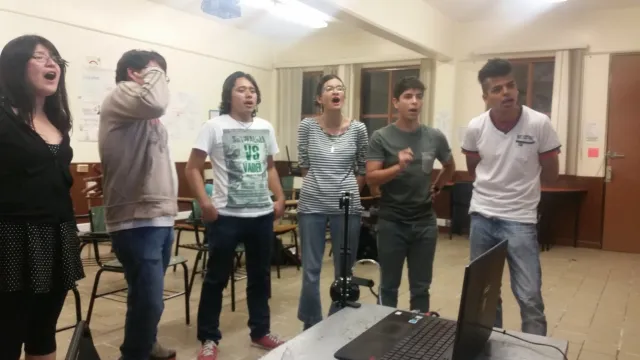
September Activity Report
September 2017
Global Japan Office Coordinator
Yair Alejandro Yebra Lara
On the 20th and 21st of September, the International Academic Fair was held at the University of Guanajuato. Universities from around the world participated at this fair, and TUFS had its own booth which provided information to students about TUFS’ exchange programs. Many students interested in Japan came and received vital information on exchange opportunities and Japanese lifestyle. Perhaps those students will come on exchange to TUFS someday. At the fair I held a presentation, in which I introduced and talked about TUFS.
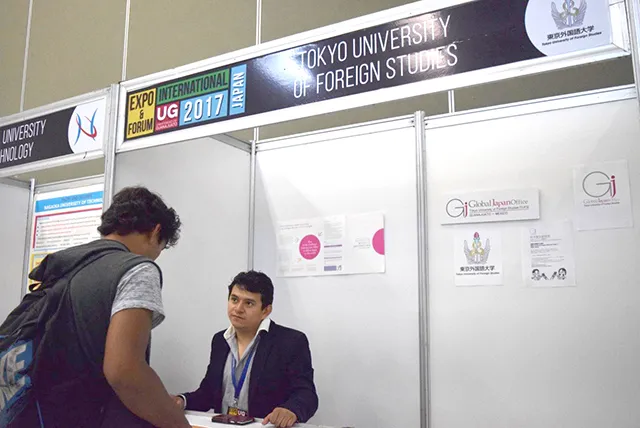
We are continuing the ‘dubbing seminar’ we opened in August. At the dubbing seminars, students learn not only Japanese and Spanish, but also acting and dubbing skills, so the seminars are always very enjoyable. Before the seminar begins, we do pronunciation practice like theatre professionals do. First the students learn to how breathe correctly, then they form a circle and practice speaking in big voices:
aeiueoao, oaoeuiea, which is repeated by everyone, which is then followed by the next person saying, kakekikukekokako, kokakokekukikeka, which is repeated by everyone, and then continued on like:
saseshisusesaso sosasosesushisesa tatechitsutetotato totatotetsuchiteta ....
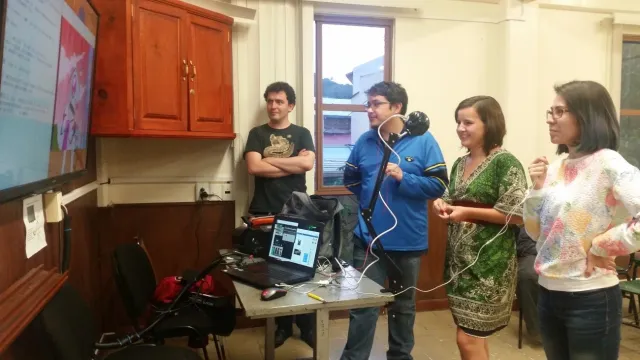
This month, three students from TUFS came to Guanajuato to study Spanish. It was only a short visit, but I think they were able to experience lots of Mexican culture.
August Activity Report
August 2017
Global Japan Office Coordinator
Yair Alejandro Yebra Lara
This month, three TUFS students came to study Spanish at Guanjuato for one month. Since they came all the way here, we took them to see two plays. One was at the Cervantes Theater, the other at the Juarez Theater. The students were even able to take photos with the actors. It was a very enjoyable experience.
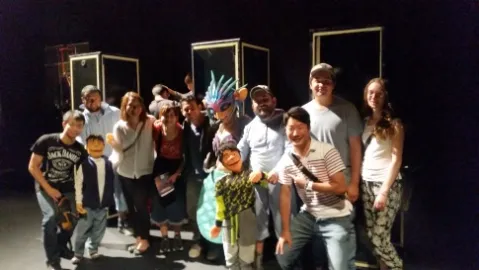
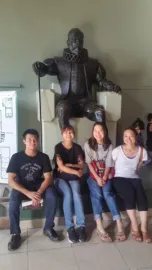
Also, in August, the Global Japan Office opened a ‘Dubbing Seminar’ at the University of Guanjuato. When learning foreign languages, there are some things that you cannot learn just from being in the classroom. In the classroom, generally you learn the academic scope of a language, but foreign languages are more than just this. For example, Japanese has tatemae, so one cannot always speak freely. So even if you learn many words, you may have very few chances to use them, which is why we started this ‘Dubbing Seminar.’ At this seminar, Mexican students that want to improve their Japanese, and Japanese students that want to improve their Spanish choose videos together, translate them, divide up the roles, and dub the videos with their own voices. The Japanese students dub in Spanish, and the Mexican students dub in Japanese, so they have the chance to practice their pronunciation, intonation, and other skills they cannot learn in class. We also play games that give students the chance to practice thinking and speaking in Japanese. We are thinking of running this seminar like a club as opposed to a class. This is so that Mexican students who have never entered a Japanese-style club can experience the atmosphere and the sense of responsibility that comes with being in a club. Also, since we have the senpai of the club teaching the newcomers, they can feel the responsibility that comes with being a senpai.
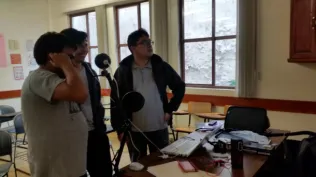
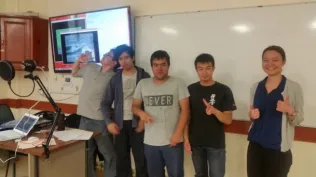
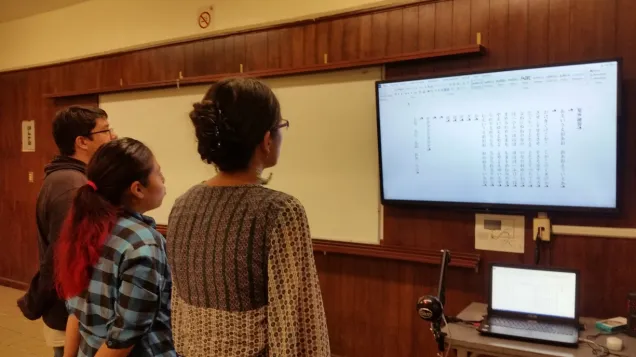
April Activity Report
April 2017
Global Japan Office Coordinator
Yair Alejandro Yebra Lara
I am Yair Yebra, and from this month I will be acting as coordinator for the University of Guanajuato GJO.
Until now, the GJO had been located in the Social Sciences and Humanities Division of the Language Department, but in offer to carry out activities in coordination with the International Division, it was relocated to the International Division office.
As I will be beginning my activities as GJO coordinator, I was introduced to everyone at the international division.
I wasn’t able to speak face-to-face with Students form TUFS who are studying abroad at the University of Guanajuato, but I introduced myself through email and on Facebook.
The Japanese students from places other than TUFS have been studying Spanish at the Social Sciences and Humanities Division of the Language Department of the University of Guanajuato since before, so they knew me already, but I introduced myself as GJO coordinator and told them to get in touch if they needed anything.
I meet with around half of these students as friends, so I think they will be able to discuss things with me easily from now on.
Aside from this, I contacted the students who will be international exchange students at TUFS as of this autumn and introduced the GJO. As far as I could, I helped them with the procedures for studying abroad and answered their questions on life in Japan.
In Mexico, there is a two-week holiday for ‘Semana Santa’ and ‘Semana de Pascua’ in April. During Semana Santa all of the universities and various companies close for about a week, and then in Semana Pascua the University of Guanajuato and other universities are closed for an additional week, so for two weeks you can’t enter the university and the students are doing things like having fun travelling.
